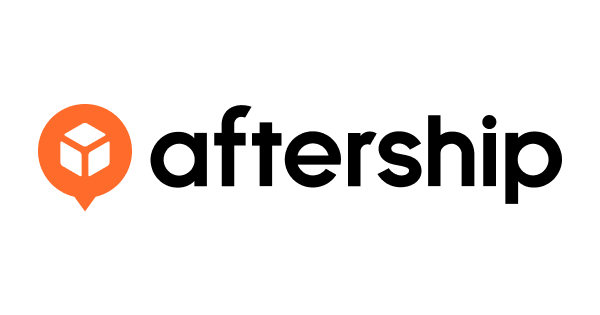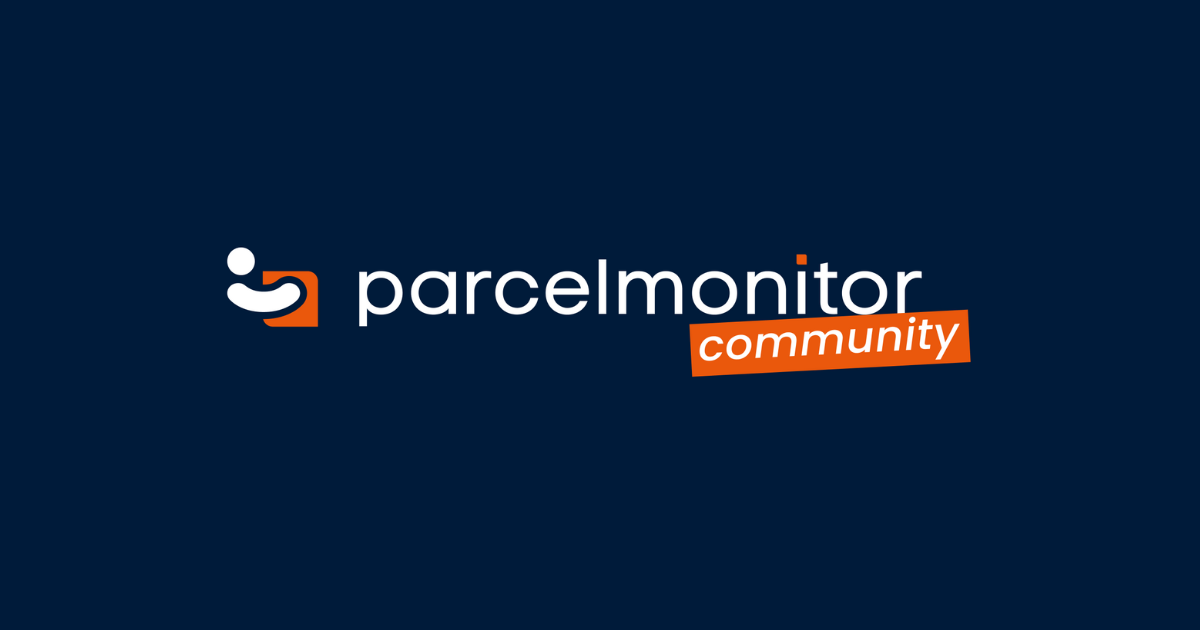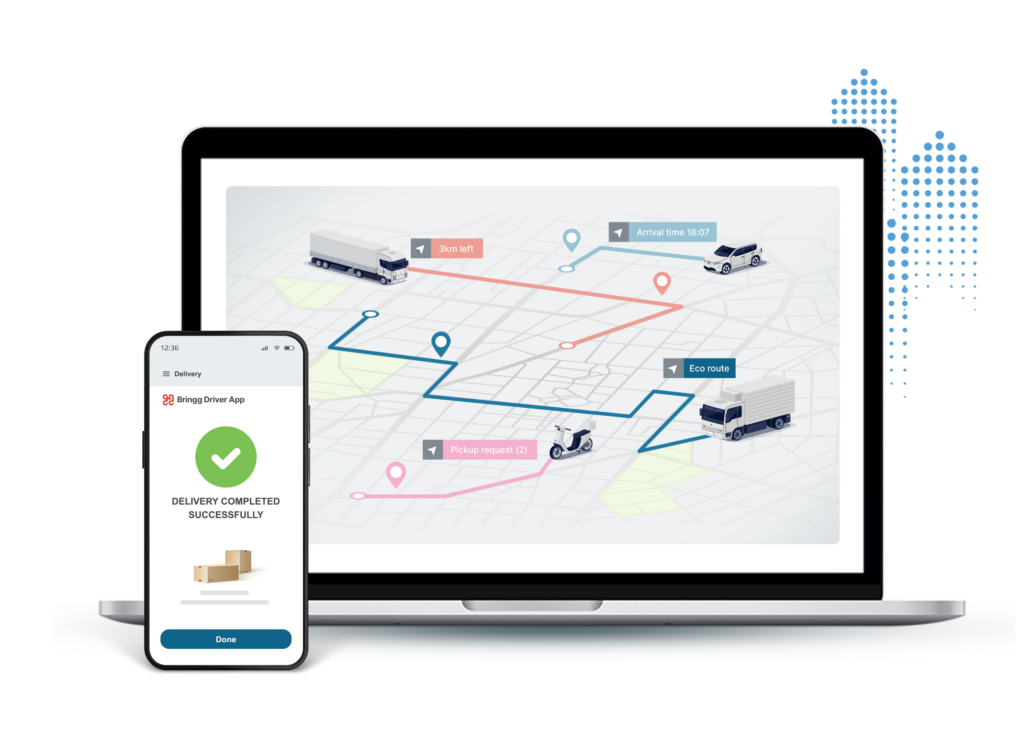Introduction
Efficient supply chain and package tracking capabilities are essential for businesses of all sizes in today’s world. Whether you’re a large retailer fulfilling thousands of orders daily or a small D2C brand just starting out, having visibility into your inventory, shipments and deliveries is key to optimizing operations and delivering great customer experiences. This guide analyzes 15 top supply chain and package tracking software solutions based on features, pricing, reviews and other factors to help you choose the right partner to support your distribution needs in 2023 and beyond.
Methods of Evaluation
The solutions will be evaluated based on criteria like core features, carrier integrations, mobile and API capabilities, pricing structures, customer reviews and ratings. Additional factors like number of backlinks, organic traffic and keyword search trends will also be considered to determine the overall market popularity and demand for each solution. The top performers in critical areas will be highlighted in the conclusion along with specific use cases they might be best suited for.
1. WooCommerce Shipping
WooCommerce Shipping is a free plugin for WooCommerce stores that allows merchants to easily integrate shipping functionality. It supports major carriers like USPS, UPS, FedEx, DHL and provides tools to set up shipping zones, rates and print shipping labels directly from the WooCommerce admin.
Pros: The main advantages of using WooCommerce Shipping include:
– It’s free to use with no transaction or monthly fees
– Seamless integration with WooCommerce stores out of the box
– Supports all order statuses like pending, on-hold, processing etc.
– Provides real-time shipping rates and tracking directly on product pages and order emails
Cons: The only potential disadvantage is that being an open-source plugin, it may not have all the advanced features of paid shipping plugins. However, for most small to medium WooCommerce stores, it provides more than sufficient shipping functionality.
Pricing: WooCommerce Shipping is completely free to use and install. There are no transaction fees or monthly/annual subscriptions required to take advantage of its core shipping functionality.
Some key features of WooCommerce Shipping include:
– Supports all major shipping carriers in US, Canada and worldwide
– Allows merchants to offer multiple shipping options to customers
– Tools for easily creating shipping zones based on country, state, zip codes etc.
– Automatically calculates domestic and international shipping rates
2. Dispatch
Dispatch is a logistics software company that offers a package tracking platform for businesses. Founded in 2013 and headquartered in Columbus, Ohio, Dispatch helps businesses improve efficiency and visibility across their operations.
Pros: Key advantages of Dispatch’s package tracking software include:
– Fleet and asset tracking platform for optimizing dispatch and field operations
– Real-time ETAs and geofencing alerts to improve visibility into deliveries
– Dispatch optimization tools to efficiently plan routes and maximize productivity
Cons: A potential disadvantage is that the software is meant for business use and may have more features than needed for personal package tracking needs.
Pricing: Dispatch offers monthly pricing plans starting at $99 per month for the basic ‘Starter’ plan which supports up to 3 users and 500 objects tracked. Larger businesses will need an Enterprise plan with custom quotes for advanced features and unlimited users/objects.
Some key stats about Dispatch’s package tracking software include:
– Tracks over 10 million shipments per year
– Used by over 5,000 customers worldwide
– 99.95% uptime reliability
– Geofencing and real-time location tracking for assets on the move
3. Trimble Transportation
Trimble Transportation is a leader in transportation management systems (TMS) and telematics software. Their flagship product, Trimble Transportation & Logistics, is a full-featured TMS that provides dispatch, routing, load tracking and more in one integrated system.
Pros: Key advantages of Trimble Transportation & Logistics include:
– End-to-end visibility into the entire transportation network
– Real-time tracking of loads, assets and drivers
– Powerful dispatch and planning tools to maximize efficiency
– Integrations with telematics, ELDs and other critical transportation systems
Cons: A potential disadvantage is the steep learning curve of the fully-featured system which may require significant implementation time and training for large deployments.
Pricing: Pricing for Trimble Transportation & Logistics is not publicly listed but is customized based on fleet size, modules implemented, and other factors. Implementation services are also typically required which contribute to the total cost of ownership.
Some key stats about Trimble Transportation & Logistics include:
– Used by over 10,000 customers in over 50 countries worldwide
– Manages over 5 million assets and 10 billion miles of routes annually
– Integrates with over 200 ELD, telematics and mobile apps
4. Infor
Infor is a global enterprise software company that provides industry-specific cloud-based ERP, supply chain management, manufacturing, and other business software. They have been in business since 2002 and offer a comprehensive portfolio of solutions to optimize critical business functions across various industries like manufacturing, distribution, healthcare, hospitality, and more.
Pros: Key advantages of Infor’s solutions include:
– Industry-specific configurations out of the box for faster ROI
– Modern cloud architecture built for agility and scalability
– Robust supply chain and logistics capabilities for complex global operations
– Integrated portfolio of solutions to help optimize business processes
Cons: One potential disadvantage is that Infor’s solutions may be overkill for smaller businesses with less complex needs that could be satisfied with cheaper general-purpose ERP alternatives.
Pricing: Infor pricing varies based on the solutions, modules, industry, and deployment model (cloud or on-premise). However, in general, expect to pay anywhere from $50-500 per user per month for cloud subscriptions.
Some key stats about Infor include:
– Over 80,000 customers in over 100 countries
– Over 200 industry-specific cloud suites
– Over $1 billion invested in R&D annually
– 17,000 employees worldwide
5. AfterShip
AfterShip is a package tracking platform that helps merchants provide visibility and customer engagement throughout the entire order lifecycle. Founded in 2013, AfterShip has grown to serve over 100,000 merchants and has tracked more than 1 billion shipments across 220 countries and regions globally.
Pros: Some key advantages of AfterShip include:
– Easy-to-use tracking and analytics dashboard to view shipments, exceptions, and custom analytics reports
– Connects to all major carriers globally to pull in tracking data automatically
– Provides customer communication tools to send automated emails and text messages at different stages of the shipment journey
Cons: One potential disadvantage is that the free plan only allows tracking of up to 500 shipments per month. For merchants with higher volumes, one of the paid plans would be required.
Pricing: AfterShip offers the following pricing plans:
– Free Plan: Allows tracking of up to 500 shipments per month
– Premium Plan: $29/month – Unlimited shipments and enhanced features
– Enterprise Plan: Custom pricing – Dedicated support and custom integrations
Some key stats about AfterShip include:
– Tracks over 1 billion shipments annually
– Serves over 100,000 merchants globally
– Integrates with all major carriers including USPS, UPS, FedEx, DHL and many more
– Available in over 30 languages
6. ShipBob
ShipBob is a leading ecommerce fulfillment provider that offers inventory management, order fulfillment, and multi-channel shipping support. Founded in 2014, ShipBob has grown to serve over 5,000 customers and processes over 2 million orders per year. Their platform helps ecommerce businesses scale operations, reduce costs, and provide fast delivery to customers.
Pros: Some key advantages of using ShipBob include:
– Fulfillment services tailored for high volume retailers including inventory management and multi-channel order fulfillment.
– Returns handling and customer support to reduce customer service burden on merchants.
– Real-time order tracking and shipping updates along with analytics on orders, inventory, costs and more.
– Ability to offer faster delivery through their nationwide fulfillment network.
Cons: One potential disadvantage is that ShipBob may be more costly compared to self-fulfilling orders for smaller volume stores. Their pricing is based on order volume so merchants with low order volumes could end up paying higher per-order rates.
Pricing: ShipBob pricing starts at $2 per item plus additional fees for services like inventory storage, returns handling and shipping. Rates decrease as order volume increases with discounts available for monthly storage, prep and shipping. They also offer customized quotes for larger merchants.
Some key stats about ShipBob include:
– Processes over 2 million orders per year
– Serves over 5,000 active customers
– Covers 99% of US addresses with 2-day shipping
– Over 450 employees
– 13 fulfillment centers across the US
7. Freightos
Freightos is a global online freight marketplace that connects shippers with carriers to book international shipments. Founded in 2012, Freightos aims to make global trade easier by offering real-time rates and tracking across multiple modes of transportation like ocean, air, and truck. Their online platform provides services for both freight forwarders and direct shippers.
Pros: Some key advantages of using Freightos include:
– Global coverage and connectivity with ports, carriers and forwarders worldwide
– Real-time freight rates and booking capabilities across multiple modes of transport
– Shipment tracking from origin to destination with automated status updates
– Powerful API and transport management systems for larger shippers and forwarders
Cons: One potential disadvantage is that Freightos is primarily focused on international shipments and may not offer the same level of support for domestic shipments within a single country.
Pricing: Freightos offers both free and paid subscription plans. A basic account is free but offers limited functionality. Premium paid plans range from $99-$299 per month and provide more advanced features like customized rate contracts, dedicated account support, and analytics/reporting tools.
Some key stats about Freightos include:
– Processes over $10 billion in freight transactions annually
– Handles shipments to and from over 180 countries
– Works with over 600 ocean carriers and freight forwarders
– Manages shipments by ocean, air, truck and rail
8. Descartes
Descartes is a leading provider of technology solutions for logistics and supply chain management. Founded in 1981, Descartes solutions help organizations improve performance by integrating and connecting supply chain participants. The company powers global commerce by providing integrated applications and networking capabilities that help execute more than a billion of shipments annually.
Pros: Some key advantages of Descartes’ package tracking solution include:
– Global logistics network platform allows end-to-end visibility across all modes of transportation.
– Carrier compliance features and customs connectivity help streamline the shipping process.
– Offers full supply chain visibility from raw materials to the end consumer.
Cons: The high annual subscription pricing may be a disadvantage for smaller companies and startups with smaller shipping volumes.
Pricing: Descartes pricing is customized based on factors like shipment volume, number of users, and add-on services. However, enterprise customers can expect to pay a five-figure annual subscription for the full suite of supply chain and logistics solutions.
Some key facts about Descartes’ package tracking software include:
– Processes over 220 million shipping transactions per year.
– Supports visibility for over 25,000 carriers, ocean vessels, and airlines globally.
– Manages customs clearance processes for over 50 countries.
9. InPost
InPost is a leading automated parcel locker provider in Poland. Founded in 2001, InPost operates over 16,000 automated parcel lockers across Poland under the Paczkomat brand. Paczkomat lockers allow senders and recipients to conveniently send and receive packages 24/7 without any human interaction.
Pros: Some key advantages of InPost’s package tracking software:
– Provides last mile delivery through automated parcel lockers eliminating the need for signatures or set delivery times
– Enables high-volume automated parcel processing helping reduce delivery time and costs
– Offers 24/7 access to lockers for both senders and recipients for maximum flexibility
Cons: One potential disadvantage is that InPost’s services are only available within Poland currently so the software may not be applicable for international shipping needs.
Pricing: InPost offers both free and paid pricing plans for its package tracking software. Basic sender and recipient features are free but value-added services like business accounts, shipment notifications and analytics require a paid subscription starting at $25/month.
Some key stats about InPost:
– Over 16,000 automated parcel lockers across Poland
– Processes over 100 million parcels annually
– Has a 98%+ customer satisfaction rate
– Partners with major online retailers like Allegro and eObuvam
10. Shippo
Shippo is a leading package tracking and multi-carrier shipping software used by thousands of ecommerce businesses. Founded in 2014, Shippo allows merchants to compare rates, print shipping labels, track packages across major carriers like USPS, UPS, and FedEx directly from their web dashboard or via API.
Pros: Some key advantages of Shippo include:
– Integrates with many popular carriers like UPS, USPS, FedEx etc.
– Offers real-time tracking and notification features
– Powerful API for building custom integrations
– Easy to set up and manage shipping from one centralized dashboard
Cons: One potential disadvantage is that Shippo does not offer its own shipping/carrier services directly like some competitors. Businesses are still relying on the carriers it integrates with for delivery fulfillment.
Pricing: Shippo offers flexible pricing plans starting from a free plan for low volume usage. Paid plans start at $49/month for up to 5,000 shipments and include additional features like support, discounted rates and billing tools.
Some key stats about Shippo include:
– Integrates with over 50 carriers worldwide including USPS, UPS, FedEx, DHL and more
– Used by over 10,000 merchants including Dollar Shave Club, Warby Parker, BestMade
– Handles over $1 billion in shipping transactions annually
11. Bandwidth
Bandwidth is a leading communications platform that provides APIs for voice, messaging and emergency services. One of their products is a package tracking platform that allows businesses to integrate shipping status updates and notifications into their applications and websites. With their API-first approach, the platform seamlessly integrates with various platforms and services.
Pros: Some key advantages of Bandwidth’s package tracking platform include:
– API-first design makes integration simple across different platforms.
– Works with all major carriers like UPS, FedEx, USPS for shipping status updates.
– Real-time notifications keep customers updated on package deliveries.
– Detailed analytics help optimize processes and address issues with carriers.
– Customizable tracking pages can be embedded on websites.
Cons: One potential disadvantage is that the platform is suited more for larger businesses due to its pricing structure. Smaller companies or individual users may find other free or low-cost options more suitable.
Pricing: Bandwidth offers package tracking services on a pay-as-you-go model. Pricing starts from $0.0001 per lookup. There are no minimum fees or commitments. Additional features like customized tracking pages, reports and analytics might have additional costs based on requirements.
Some key stats about Bandwidth’s package tracking platform include:
– Over 10,000 customers worldwide using their platform.
– Tracks over 1 billion packages annually across major carriers.
– Real-time updates on package statuses are available within seconds.
– Powerful analytics dashboards provide insights into carrier performances.
12. Project 44
Project 44 is a leading supply chain visibility platform that provides shippers and logistics service providers with end-to-end shipment visibility across all modes of transport. Founded in 2014, Project 44 leverages data from over 500 carrier integrations to deliver real-time status updates on shipments to its customers. With their platform, shippers gain access to critical ETAs, proof of delivery documentation, and exception alerts to help optimize operations and deliver exceptional customer experiences.
Pros: Some key advantages of Project 44’s platform include:
– Cross-border visibility across all modes of transport including less-than-truckload, truckload and parcel
– Real-time tracking updates without needing to manage individual carrier integrations
– Full API and integration capabilities for easy data access and analytics
– Advanced exception management tools to proactively address shipping delays or issues
Cons: One potential disadvantage is that advanced analytics and customization capabilities require additional premium packages beyond the basic visibility features.
Pricing: Project 44 offers various pricing tiers depending on features and data volumes. Basic plans start at $0.50 per shipment tracked with additional fees for premium features like analytics, custom reporting and exception management tools.
Some key stats about Project 44 include:
– Over 500 carrier integrations, including tracking support for all major ocean, air, rail and truck carriers
– Over 1 billion shipment events processed per year
– Over 10,000 customers including many Fortune 500 shippers and 3PLs
– Fully containerized architecture allows for 99.99% uptime
13. Delhivery Box
Delhivery Box is a leading supply chain SaaS product from Delhivery that helps automate shipping workflows for eCommerce businesses in India. As one of the largest logistics players in the country, Delhivery is well positioned to offer a unified tracking solution for Indian shipping. Delhivery Box allows users to ship with all major Indian carriers like Blue Dart, Delhivery and integrate orders from shopping carts like Shopify, Magento etc. automatically.
Pros: Some key advantages of using Delhivery Box:
– All-in-one solution to ship with all major Indian carriers from a single interface
– Saves time by automating workflow tasks like order fetching, label generation and tracking updates
– Easy to integrate with existing shopping carts using webhooks and APIs
– Comprehensive tracking ensures packages are delivered safely
Cons: One potential downside could be that Delhivery Box currently only supports shipping within India since it is focused on the domestic logistics market.
Pricing: Delhivery Box offers simple per-shipment pricing ranging from Rs. 20-40 depending on the carrier and package weight. It also offers volume-based discounts for high-shipping businesses. There is a 15-day free trial available to help merchants evaluate the software.
Some key stats about Delhivery Box:
– Over 50,000 active users
– Supports shipping to over 19,000 pin codes in India
– Automatically generates shipping labels for all major Indian couriers
– Integrates with 50+ shopping carts and marketplace platforms
14. ParcelMonitor
ParcelMonitor is a leading cloud-based package tracking platform that helps businesses gain visibility and control over their shipping operations. Founded in 2007, ParcelMonitor has grown to support over 200,000 active users and processes over 1 billion shipments tracked annually across more than 500 carriers globally. Their easy-to-use dashboard interface and robust API allows customers to automate package tracking, customize notifications, and leverage data-driven shipping insights.
Pros: Some key advantages of ParcelMonitor include:
– Real-time tracking updates across supported carriers for full visibility into shipments.
– Shipment notifications and reports to stay on top of delivery statuses.
– User and permission management for control over team access and tracking privileges.
– Powerful dashboard and tracking widgets to centralize logistics operations.
– Customizable tracking workflows through Zapier and other integrations.
Cons: One potential disadvantage is that the tool may have a learning curve for more advanced customization and automation capabilities through the API.
Pricing: Pricing for ParcelMonitor starts from free personal accounts up to professional plans starting at $49/month for up to 500 shipments tracked monthly. Enterprise pricing is available for larger volume businesses.
Some key stats about ParcelMonitor include:
– Supports tracking for over 500 carriers globally including USPS, UPS, FedEx, DHL and many regional carriers.
– Processes over 1 billion shipments tracked annually for customers.
– Supported by a community of over 200,000 active users.
– Integrates with over 100 platforms including Amazon, Shopify, eBay, WooCommerce and others via their API.
15. Bringg
Bringg is a leading delivery management platform that helps companies plan, optimize and execute their last-mile operations. Founded in 2013, Bringg helps retailers, restaurants and logistics companies manage everything from order routing and dispatch to driver tracking and ETA communication. With clients around the world ranging from Walmart to McDonald’s, Bringg has become a trusted partner for complex delivery logistics.
Pros: Some key advantages of Bringg’s delivery management platform include:
– Real-time route optimization that adjusts to changing conditions like traffic
– Driver tracking and ETAs that provide visibility to customers
– Multi-modal capabilities that support different fleet types like bikes, cars, trucks
Cons: One potential disadvantage is that Bringg focuses only on delivery logistics and related analytics. It does not offer CRM features or other extensions beyond delivery operations management.
Pricing: Bringg offers several pricing tiers depending on the complexity and size of a business’s delivery operations. Basic plans start at around $1,500/month for up to 5 drivers. Enterprise plans with custom features are individually quoted based on requirements and volume.
Some key stats about Bringg include:
– Manage over 100M deliveries annually
– Active in over 30 countries worldwide
– Integrations with over 200 technology partners
Conclusion
While all the solutions evaluated offer compelling features for supply chain and package tracking, some stand out based on breadth of capabilities, maturity, market traction and pricing models. Larger platforms like Descartes, Freightos and Project 44 excel for enterprises with complex global supply chain needs requiring high levels of customization and support. For most SMBs, mid-market options like Shippo, AfterShip and Bringg provide the right balance of features, pricing and ease of setup to fit a variety of business models. The evaluation helps identify where each solution fits best to guide your selection and maximizes the value from your technology investments.
















